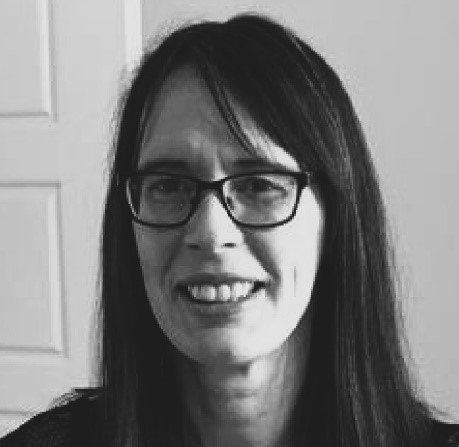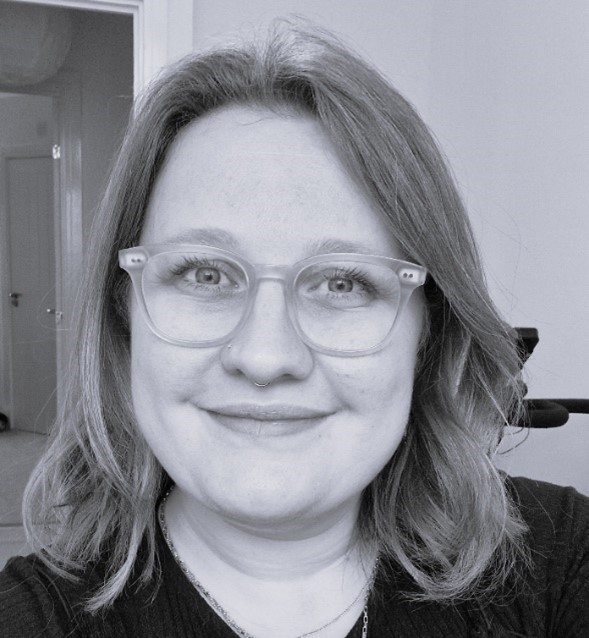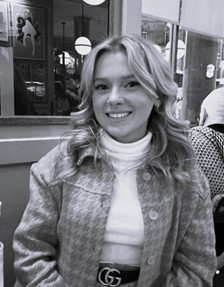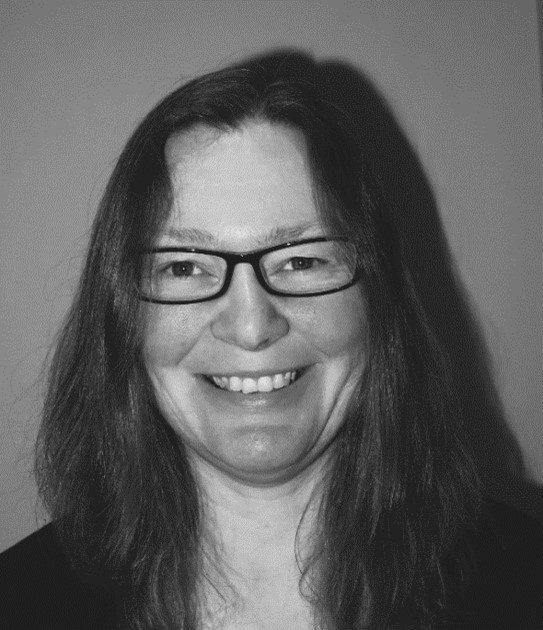To mark International Women’s Day on 8 March, we are sharing a blog from female members of the enfinium family – talking about their journey in their chosen career field, and why it is so important to encourage women to take up STEM roles.

What attracted you to the role at enfinium and the waste industry?
The primary attraction for me, was the technology and the operational strategy. The UK will always need power and will always have a need to dispose of waste, and therefore enfinium is a perfect career choice. The added benefit is the quality of the people that I met since I have joined the company.
What interests you about Engineering?
I have been an Engineer for nearly 30 years now and my interest never wanes. I always enjoy troubleshooting and understanding how things work and why things happen, I then try and fix them permanently. Using data to better understand the facilities, leveraging off the team’s expertise and demonstrating an improvement in availability and reliability of the assets is a real passion for me. Just heads up though, I ask a lot of questions but that is basically me trying to understand the issues and the root cause.
What are the highlights of your career so far?
I have been privileged over the years to have been supported by some amazing people. As a result, I have had some amazing opportunities and career highlights. Very early in my career I was involved in a project where a plant that was built and never commissioned in Scotland was cut into 28,000 pieces and shipped to Alabama. My job was to recruit, commission and operate the plant in the Deep South. That experience as a young engineer was very demanding but hugely satisfying, I learnt a lot not only about engineering and plant operations but about the cultural differences between the UK and the US. I also spent some time in power generation operating coal boilers, gas turbines and a biomass boiler, all of which were challenging in their own right but the satisfaction of improving availability and working as a team is something I want to do at enfinium.
Can you tell us about your CBE?
I was fortunate to be awarded a CBE (Commander of the British Empire) in September 2019 for services to Chemical Engineering. It was a complete surprise and an honour to be nominated by the Royal Academy of Engineering and the Institution of Chemical Engineers. Both of these organisations I have worked with for numerous years and still do. I am currently a Trustee of the Royal Academy and sit on various committees and I chair the commercial panel for the Institution of Chemical Engineers. Both of these organisations I have worked with for numerous years and still do. I am currently a Trustee of the Royal Academy and sit on various committees and I chair the commercial panel for the Institution of Chemical Engineers. Over the years I have also been to many schools and spoken to many institutions trying to encourage young people to come into Engineering. So to be nominated for a CBE was amazing, I have a certificate which is signed by the Queen and Prince Phillip and a beautiful medal that I wear on occasions.

How did you decide to follow your chosen career path?
I did not really make a conscious decision I just took a temp job as a receptionist but was bored sat on reception so asked for jobs to do and they gave me accounting work which I really enjoyed.
What do you enjoy about the role?
I love getting an answer to a calculation or writing a report with a recommendation to support the business.
What has been your experience of joining the company? How have you developed in your role there?
I joined the company nearly 10 years ago and I was given a laptop and left to set everything up – including the IT systems and staff! As the company has grown and matured, my role has narrowed as I now focus on operational accounting and controls, but it is allowing me to really push the team to work as efficiently as possible with continuous improvement being where I spend most of my time.
What advice would you give to someone considering a career in your industry?
Get out and about on sites as much as possible and talk to as many people as you can. The more you see, the easier it is to understand the numbers and bring them to life!
Why do you think supporting women in STEM is important?
It is crucial to support women in STEM so that we have an equal and diverse workforce bringing together different ways of thinking, in order to get the best results.
Do you have any tips for students and graduates?
Do not be afraid to ask questions and then really listen to the answers, it is the only way to learn.

How did you decide to follow your chosen career path?
I don’t think I ever really made a conscious decision to pursue my current career. In fact, when I first went to university I thought I would be pursuing a career in finance, not engineering. Ultimately, I have ended up in my current role by saying yes to opportunities as they have presented themselves, even if they were not necessarily where I thought I wanted my career to go at first.
What do you enjoy about the role?
My role is varied and fast paced, no two days are the same and there’s always a fire to fight. It keeps things interesting.
What has been your experience of joining the company? How have you developed in your role there?
Joining enfinium has been a great step in my career, it’s been a breath of fresh air to work for a company that is taking the initiative to plan for the future now instead of just kicking back and waiting for policy to force that change. enfinium have been supportive of my development both in my day-to-day role, but also looking forwards to my next step once the project I’m currently on is complete. This has included partially funding an MBA which I started in September through their masters funding programme.
What advice would you give to someone considering a career in your industry?
If you’re considering a career in energy, I would just say go for it! Energy is a great industry to be in right now, the sector is changing at a rapid pace and there is going to be a huge amount of interesting work over the next few decades (and beyond) as we tackle the great challenge that is decarbonising our energy supply. There’s no better time to join the industry than now.
Why do you think supporting women in STEM is important?
We are facing the challenge of a lifetime with decarbonising our energy supply, and we need to do everything we can to recruit and retain the best possible workforce to attack this challenge, and that means a diverse workforce. After all, it is a proven fact that diverse teams perform better across the board when compared to their peers. I would go as far as to say that supporting women to both enter and stay in the sector is fundamental to our ability to achieve our net zero targets.
Do you have any tips for students and graduates?
Keep yourself open to opportunities, even if they are something completely different to where you first saw your career going – you never know where they might take you.

How did you decide to follow your chosen career path?
I decided to do an engineering apprenticeship as I saw it as a good opportunity and an alternative to going down the traditional college and university route as a way of getting into the industry. Through my apprenticeship, I was able to learn the technical side of my trade as well as working physically on pieces of equipment and around the plant to gain a deeper knowledge.
What do you enjoy about the role?
Within my role as an electrical, control and instrumentation (EC&I) technician I enjoy the fact that each day is different, and no two problems have the same solution. Because of the changing nature of the job role, it keeps work interesting and means there is always an opportunity to learn more and further my skills.
What has been your experience of joining the company? How have you developed in your role there?
Before starting at the company, I worked within the oil and gas sector and since Energy from Waste is a completely different industry, I had to learn the full site process when joining enfinium. Everyone at the company was helpful with this and very welcoming. In my time working within the maintenance department and working alongside a range of fantastic technicians, engineers, and operators I have been able to learn about the energy from waste process in depth. This has helped me gain more confidence not only in my process knowledge, but my technical knowledge as well.
What advice would you give to someone considering a career in your industry?
If you have an interest in engineering, follow that. It’s a very interesting and engaging career. The more interest and effort you put into the job role the more opportunities and enjoyment you will get out of it.
Why do you think supporting women in STEM is important?
Supporting women within STEM is important because as time goes on and we get more women choosing a career in STEM, it shows to the future generation that may be interested in joining the sector that it is an option for them – as well as showcasing strong role models for women in the future.
Do you have any tips for students and graduates?
Don’t be nervous when first starting out. It can be quite daunting walking into a male dominated environment, but everyone is there to help and develop your skills. If you show you’re interested and willing to engage, then you’ll get a lot of enjoyment out of the job and be able to make a good career out of it.

How did you decide to follow your chosen career path?
I was good at maths and physics at school. My dad worked in a maintenance team within the engineering industry, so I was already aware of engineering and some careers in the industry. I thought that engineering was a way of combining my practical interests in how things work with my academic capabilities. It was also a good degree to take with lots of career choices. Not all engineering graduates choose to go into engineering after their studies.
What do you enjoy about the role?
No day is the same and there are lots of interesting problems to solve. I have worked in a wide variety of areas and I’m always learning, using, and developing my skills. It’s not just a desk job and I get to spend time looking at things around the plant and visiting people. I like improving how things work and what we do also has a positive environmental impact as well.
What has been your experience of joining the company? How have you developed in your role here?
Very good so far. There has been a considerable investment in me doing my job well and allowing me to spend time getting to know my colleagues. I’ve only been in the company for less than a year so there hasn’t been much time for development yet, but my previous roles were in power generation rather than energy from waste which has been interesting to find out more about.
What advice would you give to someone considering a career in your industry?
Take every opportunity to gain experience and enjoy it.
Why do you think supporting women in STEM is important?
I think it can be a lonely and isolating environment working in STEM when you are the only person like you in a particular work area – something which is not always appreciated by those around you. I think networks and mentors are a good way of sharing experiences and enabling people to feel they fit in. In terms of engineering, I think we generate better solutions if we have a more diverse set of people to draw on, in terms of both experience and problems.
Do you have any tips for students and graduates?
Stay open to opportunities – I wanted to be a design engineer when I started my course. I’ve spent time in trading, operational power stations, consultancy engineering businesses, none of which have a lot to do with design. However, I’ve really enjoyed the roles I’ve had and worked in areas I would never have imagined when I was at university.